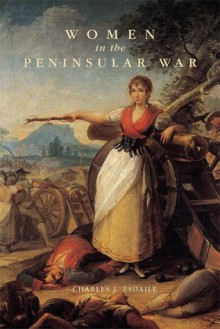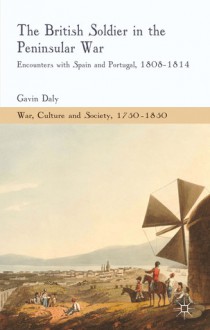
Napoleon Bonaparte's decision in 1808 to occupy Spain typically is ranked second only to his invasion to Russia in terms of the disastrous mistakes made by the French emperor. What began as a swift military operation soon degenerated into an "ulcer" that tied down thousands of troops, slowly bleeding France's strength. For this reason, the Peninsular War has never wanted for attention, especially among British historians who have long chronicled the campaigns waged by Arthur Wellesley in his ascent to glory as the Duke of Wellington.
Yet for all of the attention the war has received Charles Esdaile is able to offer something different from most English-language accounts of the war, which is a Spanish-centric focus. This allows him to highlight a number of important points lacking from previous accounts, not the least of which is the importance of the war to the history of Spain itself. This self-evident point is detailed superbly in his book, which shows how the French occupation played into Spanish politics. Dominated by the royal favorite Manuel Godoy, Spain agreed in 1807 to support France invasion of Portugal. Godoy's unpopularity with both the Spanish public and the heir, the future Ferdinand VII, did little to warm the Spanish political nation to their involvement. The political crisis created by the Mutiny of Aranjuez gave Napoleon the opportunity to intervene by exploiting the request to arbitrate the succession crisis between Ferdinand and his father Charles IV by installing his own brother Joseph as king.
Esdaile is sympathetic to el rey intruso, presenting Joseph as a man with good intentions thrust by his younger brother onto a throne he did not desire. These intentions were often thwarted by Spain's limited resources (which Napoleon expected to finance the occupation) and by the war. Esdaile does not minimize the brutality of the conflict, detailing the outrages and atrocities committed on all sides. He is particularly judgmental about the sometimes romanticized guerrilleros, viewing them as having a negligible military impact and describing how they were often viewed as the greater evil by many Spaniards. Esdaile is no less critical of the activities of the Spanish junta and their armies, though he gives them due credit for their performance in several battles.
Nonetheless Esdaile argues that for all of the efforts of the junta and the Anglo-Portuguese army to resist the French occupation, the French were enjoying considerable success in establishing control over Spain prior to 1812. In this respect, the key event in Spain's liberation was not a military campaign in the peninsula or a domestic political development but Napoleon's decision to invade Russia, which resulted in the withdrawal of French units necessary for maintaining control. Facing a weakened opponent, the Spanish-Anglo-Portuguese forces were able to unravel French control, driving French forces out fo most of Spain by 1814 and setting Spain down a path of political turmoil that would last for over a century.
Esdaile's arguments may challenge the assumptions of some of his readers about the war, but his arguments are difficult to deny. Based on an impressive range of Spanish, English, and French sources, they offer a valuable multi-dimensional account of a complicated and often vicious conflict. While his prose is often blunt, his combined analysis of military operations and Spanish politics make his book necessary reading for anyone interested in the Peninsular War or the history of modern Spain. Though it will hardly be the final word on the subject it will long be one that people will need to consult to understand this event and its lasting repercussions for all involved.

 Log in with Facebook
Log in with Facebook 









